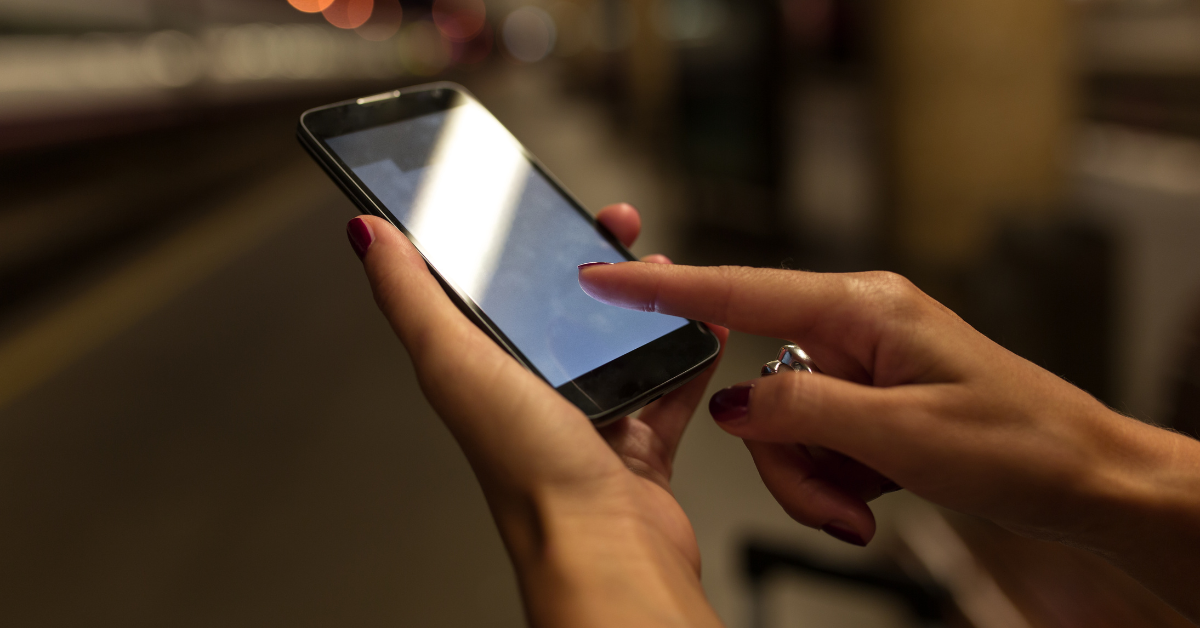It’s a road, not a destination
Advancing technology has brought more health care into the digital world. Today there are tons of behavioral health applications and services to choose from. Although these tools have been available for years, the COVID-19 pandemic propelled their adoption forward as most behavioral health care moved online. An ongoing shortage of behavioral health providers and increasing costs have also prompted consumers to turn to digital apps to help manage mental health symptoms.
There are hundreds of behavioral health apps with different features aimed at a variety of needs. Some apps, like TalkSpace and BetterHelp, connect users directly to a licensed therapist for individual counseling. Other apps, such as Calm and Sanvello, offer meditation and breathing exercises to help reduce stress and anxiety. There are apps for tracking diet and fitness, managing substance misuse recovery, and apps aimed at specific demographics.
Many of these apps claim to use evidence-based techniques, such as cognitive behavioral therapy (CBT). Developers promote these tools as a way to help manage conditions such as depression, anxiety, post-traumatic stress disorder, and disordered eating.
The mental health app market is still growing and shows no signs of stopping. With so many options available, several big questions remain: Do these apps work? Does the research support their use? Could they replace traditional, face-to-face therapy? What levels of care do they replace?
Mental health apps may show promise, but research is still lacking
About 800 million people worldwide live with a mental health condition. Digital apps may help serve some of these needs, even when there aren’t enough providers. Apps can also help support individuals who live in areas with few mental health resources, or who belong to communities where mental health care has been stigmatized or otherwise underused.
But are these apps even effective? Some research suggests that they are. One review of seven meta-analyses found that digital apps had some effect on symptoms of anxiety or depression, often for several months after the study.
Other research suggests that these apps are effective as part of a broader treatment plan—not all by themselves. One study noted that apps that use CBT and mindfulness exercises can reduce anxiety symptoms. However, these apps had the biggest positive impact when they were used with face-to-face or Internet-based therapies. I think it’s very important for these applications to openly discuss the levels of care they target. Yes, I’d like to get therapy from my home, but is that really the place I should be if I’m detoxing from alcohol or other drugs? It is a bandaid where I need a tourniquet.
Unfortunately, many studies have been small, brief, or otherwise of low quality. More research could help shine a brighter light on the true benefits and shortcomings of mental health apps.
The drawbacks of these apps should not be ignored
So far, research has offered tentative support for the effectiveness of digital mental health apps. However, other challenges could offset those benefits.
Because behavioral health apps are still relatively new, they lack standardization. Consumers may have trouble understanding the best features for their needs. Without enough information and research to guide them, therapists may recommend apps that threaten client safety, unintentionally violating their Code of Ethics.
In a discussion of ethical and safety concerns regarding mental health apps in counseling, experts note that many app developers are not affiliated with mental health professionals. This could limit the app’s accuracy and effectiveness. These tools also lack emergency information, which could leave users more vulnerable in a mental health emergency.
Cost may be another concern. While some digital apps are free, not all are. Some apps offer free versions, with premium features for a cost. Others charge fees that are similar to what an in-person therapist would cost. Many apps do not work with insurance plans, which could make them cost-prohibitive for a lot of potential users.
User data security is another significant concern. Many mental health apps store sensitive data, but their developers might not necessarily make cybersecurity a high priority. Even when they do, consumers may not always install app updates regularly, leaving their personal data vulnerable to security breaches.
Available, easy-to-use apps could prompt consumers to use them as a substitute for traditional therapy, instead of as a tool that supplements standard treatment. Developers and marketers for these apps may overpromise and underdeliver, leaving many health needs unaddressed.
Research does suggest some efficacy among mental health apps, making them a potentially valuable tool with an important role to fill. Additional research is needed to better understand these apps’ full strengths and weaknesses.
Let’s be clear, digital applications are not a replacement for in-person, human interactions. All health services should maintain a face-to-face component, as there is no evidence that human beings can maintain an “online” relationship indefinitely. Clients still need to meet with a therapist and support groups in person whenever possible. Behavioral health leaders should take care to keep the digital world in check, and not lose the face-to-face community aspect of mental health.
Interested in incorporating digital apps into your behavioral health organization?
Contact Ted Wright to set up a call to discuss how Evolve Partners Consulting can support you.


